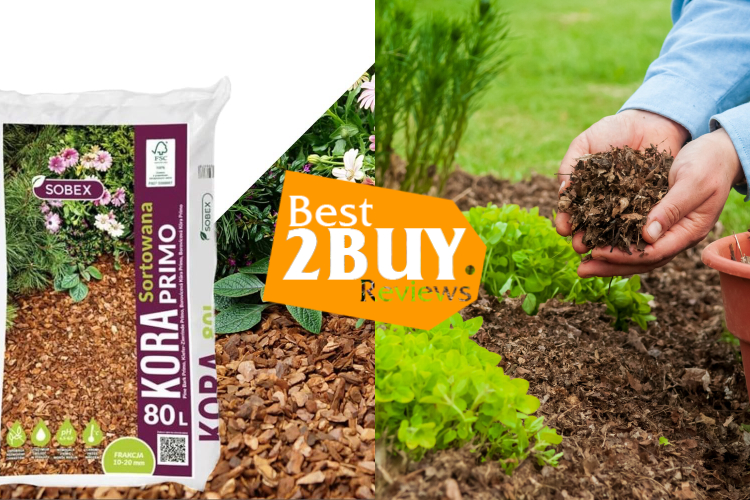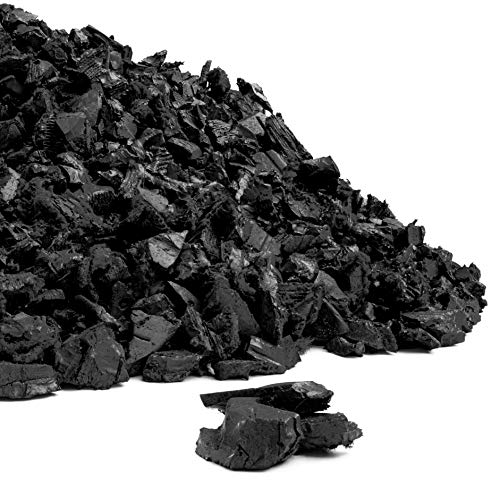How to Choose the Garden Mulch
The Benefits and Types of Garden Mulch: A Comprehensive Guide

- 1. The Benefits and Types of Garden Mulch: A Comprehensive Guide
- 1.1. What is garden mulch?
- 1.2. Types of Garden Mulch
- 1.2.1. Organic Mulch
- 1.2.2. Inorganic Mulch
- 1.2.3. Living Mulch
- 1.3. Benefits of Garden Mulch
- 1.3.1. Moisture Retention
- 1.3.2. Weed Suppression
- 1.3.3. Temperature Regulation
- 1.3.4. Soil Improvement
- 1.3.5. Erosion Control
- 1.4. Choosing The Right Garden Mulch
- 1.4.1. Type of Mulch
- 1.4.2. Climate Considerations
- 1.4.3. Soil Type
- 1.4.4. Planting Goals
- 1.4.5. Weed Control
- 1.4.6. Cost and Availability
- 1.5. When Should I Mulch My Garden?
- 1.6. Application Tips
- 1.7. Conclusion
Passionate gardeners frequently look for ways to improve the well-being and aesthetics of their plants, and a proven approach to accomplish this is by incorporating garden mulch. Mulch, a protective layer of material spread over the soil surface, provides various advantages for both plants and gardening enthusiasts. In this in-depth manual, we will delve into the benefits of garden mulch, the diverse types at your disposal, and the correct techniques for its optimal application to yield the best results.
What is garden mulch?
Mulching, in its simplest form, involves covering the soil with various materials. Depending on the chosen material, mulching offers numerous advantages and stands out as an infrequent yet highly beneficial activity that garners appreciation from the soil and plants in your garden. Whether it's your annual vegetable beds or perennial plants, shrubs, and trees, all flora experiences positive effects from the practice of mulching!
Types of Garden Mulch
Organic Mulch
- Wood Chips: A popular and aesthetically pleasing option that decomposes slowly.
- Straw: Lightweight and effective for vegetable gardens, straw mulch breaks down over time, enriching the soil.
- Bark Mulch: Available in various sizes and colors, bark mulch is durable and provides excellent weed control.
Inorganic Mulch
- Gravel or Stone: Effective for weed control and moisture retention, inorganic mulches do not decompose but may increase soil temperature.
- Rubber Mulch: Made from recycled tires, rubber mulch is long-lasting and suitable for areas where organic mulches might decompose too quickly.
Living Mulch
- Groundcovers: Plants like creeping thyme or clover can serve as living mulch, offering the same benefits as traditional mulch while adding visual interest.
Benefits of Garden Mulch
Moisture Retention
Mulch acts as a barrier, reducing evaporation from the soil surface. This helps retain moisture, particularly in areas with hot and dry climates, ensuring that plants receive a consistent water supply.
Weed Suppression
A layer of mulch inhibits weed growth by blocking sunlight, which is essential for weed germination. This reduces the competition for water, nutrients, and space, allowing your plants to flourish without the interference of invasive weeds.
Temperature Regulation
Mulch acts as an insulator, moderating soil temperature by keeping it cooler in hot weather and warmer in cold weather. This temperature stability creates an optimal environment for plant root development and overall growth.
Soil Improvement
As organic mulch decomposes, it contributes organic matter to the soil, enhancing its structure and fertility. This improves nutrient retention, aeration, and drainage, creating a healthier foundation for plant growth.
Erosion Control
Mulch helps prevent soil erosion by reducing the impact of raindrops on the soil surface. This is particularly important on slopes or in areas prone to heavy rainfall.
Choosing The Right Garden Mulch
With a plethora of options available, choosing the right garden mulch can be a daunting task. This article aims to delve into the essential factors to contemplate when choosing garden mulch, ensuring the prosperity of your gardening pursuits.
Type of Mulch
- Organic Mulch: This type of mulch decomposes over time, enriching the soil with valuable nutrients. Examples include shredded bark, straw, compost, and wood chips.
- Inorganic Mulch: Non-decomposing materials such as stones, gravel, or landscape fabric fall into this category. While they don't contribute organic matter to the soil, they offer excellent weed control and moisture retention.
Climate Considerations
- Local Climate: Consider the climate of your region when choosing mulch. In hot and arid climates, mulches that retain moisture, like straw or wood chips, can be beneficial. In cooler climates, dark-colored mulches like black plastic or rubber can absorb heat and promote soil warming.
- Rainfall Patterns: In areas with heavy rainfall, mulches that facilitate water drainage, such as pine straw or gravel, can prevent waterlogged soil. In drier regions, mulches that retain moisture, like shredded leaves or compost, are more suitable.
Soil Type
- pH Level: Some mulches, such as pine needles or coffee grounds, can influence soil pH. Consider your garden's existing pH levels and choose a mulch that complements them.
- Soil Structure: Sandy soils benefit from mulches that improve water retention, like compost or straw. Heavy clay soils may benefit from mulches that promote aeration, such as wood chips.
Planting Goals
Vegetable Gardens: Organic mulches like straw or compost are ideal for vegetable gardens as they improve soil fertility. Additionally, they help control weeds that can compete with vegetables for nutrients.
Ornamental Gardens: Mulches that enhance the visual appeal of ornamental plants, such as bark chips or decorative stones, are popular choices. Ensure that the chosen mulch complements the aesthetic of your garden.
Weed Control
- Thickness: A thick layer of mulch, usually 2-4 inches, helps suppress weeds by blocking sunlight. However, it's essential not to apply mulch too close to plant stems, as this can create a favorable environment for pests and diseases.
- Inhibitory Properties: Some mulches, like shredded newspaper or cardboard, have weed-inhibiting properties. They can be particularly effective in preventing weed growth.
Cost and Availability
- Budget: Consider your budget when choosing mulch. Organic mulches are generally more cost-effective, as they decompose over time and need replenishing. Inorganic mulches may have a higher upfront cost but can be more durable in the long run.
- Local Availability: Opt for mulches that are readily available in your local area, as they are likely to be more affordable and environmentally friendly.
When Should I Mulch My Garden?
The optimal period for applying mulch is in mid-to-late spring before weeds establish themselves or in autumn when your plants start to wither.
Apply mulch before weed germination to prevent their growth. The mulch layer acts as a barrier, trapping airborne seeds that may have settled in the soil and depriving them of sunlight.
Alternatively, mulching is suitable throughout the year, especially when introducing a new plant to your bed. This practice aids the new plant in establishing its root system without facing competition from weeds.
Application Tips
- Thickness: Apply a layer of mulch 2-4 inches thick, ensuring it covers the soil evenly. Avoid piling mulch against plant stems, as this can lead to moisture-related issues and encourage pests.
- Maintenance: Replenish mulch as needed, typically in the spring or fall. Remove any old or decomposed mulch before adding a fresh layer.
- Considerations: Tailor your choice of mulch to your specific garden needs, considering factors such as plant type, climate, and aesthetic preferences.
Conclusion
Integrating garden mulch into your landscaping routine can greatly boost the well-being and vigor of your plants, all while reducing the need for extensive maintenance. Whether opting for organic, inorganic, or living mulch, the advantages of retaining moisture, suppressing weeds, regulating temperature, and enhancing soil quality make it a valuable asset for any garden. Through careful application and consideration of your garden's specific needs, mulch can serve as a crucial component in establishing a flourishing and aesthetically pleasing outdoor environment.










